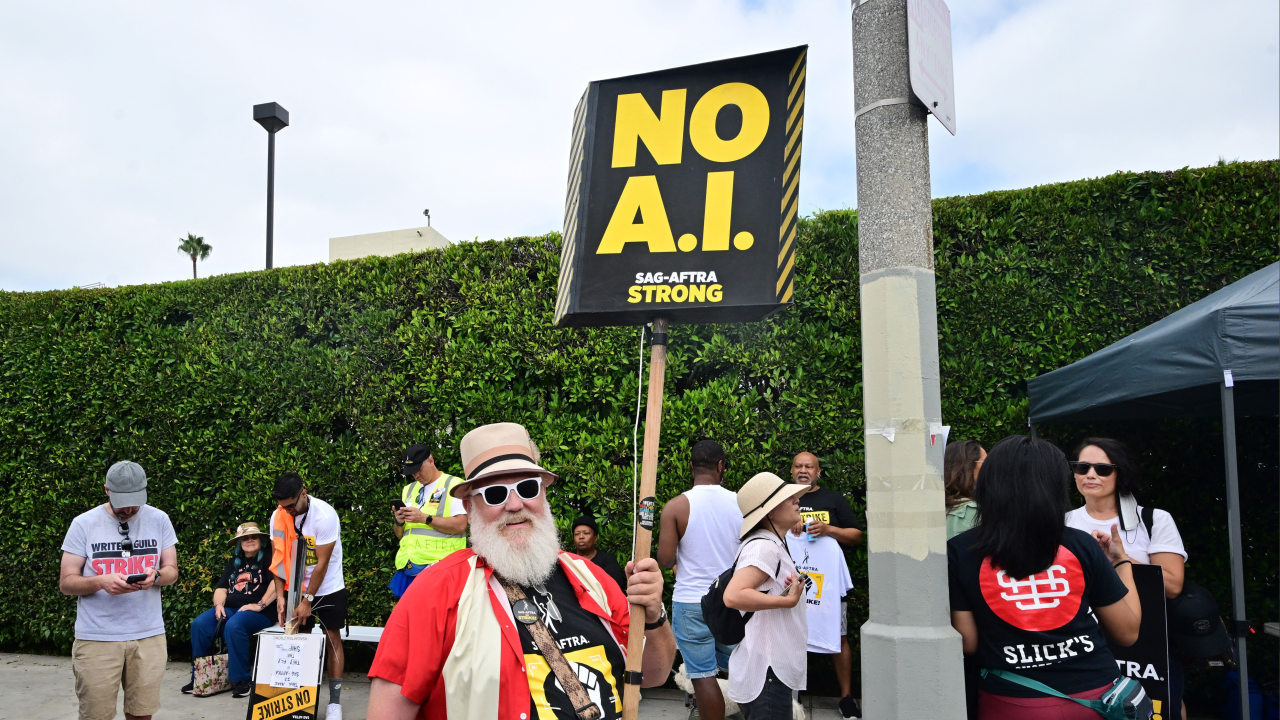
Hollywood writers and studios entered a second day of negotiations Thursday amid encouraging reports that the monthslong strike, which has shut down the entertainment industry, could be coming to an end.
Members of the Writers Guild of America (WGA) were still on the picket lines Thursday while union leaders met with the Alliance of Motion Picture and Television Producers (AMPTP) and studio heads from Netflix, Walt Disney Company, Warner Bros. Discovery and Universal Television.
Wednesday’s meeting was the first between the two sides since mid-August but it went so well that some believe a deal could be finalized as soon as Thursday, CNBC reported. However, no deal was announced at the meeting’s conclusion.
Strikers are hopeful the end is near after 143 days on the picket lines.
“I remain cautiously optimistic that the studios are actively engaging with us,” said Danny Tolli, a WGA Strike Captain. “It’s about time.”
“It could be viewed as a show of force,” said Jason Squire, Professor Emeritus at the USC School of Cinematic Arts. “It could be viewed as a wonderful, refreshing change to finally get the people in the room who can say yes to solving the problem.”
The WGA began its strike on May 2 with the Screen Actors Guild joining them in striking on July 14, marking the first time in over 60 years both unions have been on strike at the same time.
Striking writers say they are split with producers over issues such as higher residual pay, viewership transparency from streaming services, increased staffing on shows and protections against artificial intelligence.
Squire said what writers are asking for, especially when it comes to pay increases, is not unreasonable.
“It’s a very small amount of money involved in the incremental increases in minimums for writers,” he said. “It’s just so minimal compared to all the rest of the spending.”
“I don’t think people understand that’s what’s being negotiated,” said actor and writer, Justine Bateman. “The minimums, the floor.”
Actors have been on strike for 70 days. While there has been zero communication between SAG-AFTRA and major studios, there is cautious optimism that a deal with writers would be a step towards a deal with performers as well.
“The problem is you have the double strike,” Squire said. “So even if you have the writers back., SAG-AFTRA actors, the performers, will not perform unless that is settled as well.”
While negotiators were optimistic about a possible deal, sources also told CNBC that if an agreement was not reached soon the strike could last through the end of the year.
Gov. Gavin Newsom, who has been involved in getting the two sides talking again, says the strike has cost the California economy more than $5 billion.
For now, members are hopeful a quick and fair resolution is on the horizon. Squire also noted a quick resolution would be a good opportunity to come out in a positive light.
“It’s an opportunity to be a hero with creatives for years to come,” said Squire. “They’ll be talking about Donna and Ted and David and Bob. They sat in the room, they came to the table and agreed on most things, and the writers stepped back on a few things, and they solved it. You would be a hero.”
“Everyone is extremely optimistic out here,” said Tyler Bensinger, a WGA Member. “Everyone feels like it’s coming to an end.”
After meetings came to an end on Thursday, no deal has yet been reached. Both sides have agreed to continue talking. The next meeting to resume contract talks has not been announced.
The WGA estimates every day of the strike costs the California economy around $3 million.
Suggest a Correction
